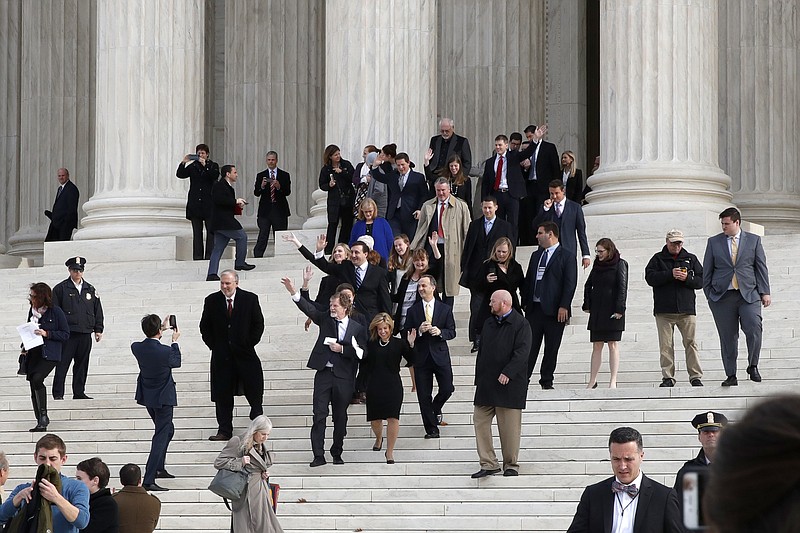There are fine constitutional lawyers who can argue back and forth about the Masterpiece Cakeshop case the Supreme Court heard last week, which will determine whether a Christian baker can decline to make a same-sex couple's wedding cake. The court's decision will either limit anti-discrimination law or limit First Amendment protections, so it's not surprising that you can find deeply footnoted legal arguments on both sides.
Nor is it surprising that I'm on the side of the baker. But I'm not going to make a constitutional argument for his rights. I'm going to make a political argument for why our country would be better off if he were left alone to bake his cakes.
The United States has the rules of a democratic republic but, increasingly, the cultural divisions of a sprawling Old World empire. We are governed by a Constitution, by the power of national majorities (or minorities with good luck in the Electoral College), and our laws are basically uniform across the land. But the scale and diversity of our country is vast and wild, encompassing immigrants from every part of the world and a native population riven by racial divisions, ideological wars and a widening religious chasm.
Democratic life requires accepting that your own faction may be out of power roughly half the time. But in a culture this diverse and divided, we trust our fellow citizens less, we share less with them, and we fear that any political defeat will leave our communities at their mercy, that if we lose power we will be routed and destroyed.
As a conservative Catholic who works in a liberal milieu, I watched this happen after Obergefell v. Hodges. For its opponents, the same-sex marriage ruling was less frightening for what it did than for what they feared might follow: not just legal same-sex nuptials, but a sweeping legal campaign against the sexual revolution's dissidents, in which conservative believers would be prodded out of various occupations, while their schools and hospitals and charities would be fined and taxed and regulated and de-accredited to death.
And liberals who felt ascendant in the Obama years simply couldn't accept this fear as something to be managed and assuaged; to them, it was either ridiculous alarmism or a cloak for bigotry. So while the Obama White House was requiring nuns to pay for abortifacients and the ACLU was suing Catholic hospitals for not performing sterilizations and state bureaucrats were trying to punish a handful of Christians in the wedding industry, what Rod Dreher called "the law of merited impossibility" dominated the liberal mind: Religious conservatives were worrying about attacks on their institutions that would never arrive, and when the attacks did arrive, they obviously deserved it.
Which in turn encouraged religious conservatives to vote for a celebrity strongman named Donald Trump. At which point the roles reversed, and suddenly it was a certain kind of right-winger who couldn't understand why blacks and Hispanics and Muslims might feel threatened by the new president, why Trump's rhetoric might make them fear for their very safety, why causes conservatives regarded as procedurally neutral exercises in enforcing laws - illegal-immigrant roundups, strict voter ID laws - were experienced as acts of white-identitarian aggression.
This kind of cycle of incomprehension and aggression tends to destroy republics if it isn't broken, if leaders can't compromise ideological principles to maintain civic peace, if partisans can't imagine how the world looks in communities vastly different from their own.
Race and religion are the crucial loci here. We need a liberalism that doesn't just rely on demographic replacement to win elections and a conservatism that doesn't just rely on fears of that replacement to hold its own. And we need a way to make the new shape of religion in America, in which a Christian core looks resilient, the lukewarm are secularizing and non-Christian faiths expand apace, feel less threatening to everybody - so that conservatives stop panicking about shariah law every time a mosque goes up nearby, and the left stops preening about social justice while dragging nuns and florists into court.
Liberalism won the same-sex marriage battle. Religious conservatism isn't going away. We all have to find a way to live together. That goal requires some compromise and magnanimity. Here is an opportunity: Please, for the sake of the country, leave the baker alone.
The New York Times
